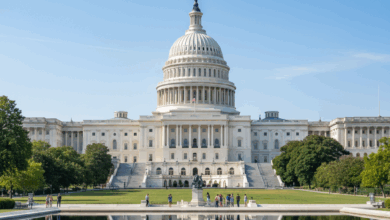Algeria Enforces Complete Crypto Ban with Harsh Penalties Under Law No. 25 - 10

Algeria has enacted one of the world’s strictest anti-crypto laws, officially outlawing all cryptocurrency-related activities. Law No. 25 - 10, which took effect on July 24, 2025, bans the issuance, possession, purchase, sale, storage, mining, promotion, and use of digital assets. It also prohibits any services linked to these activities, including crypto exchanges, wallets, and mining operations.
This sweeping legislation places Algeria alongside a select group of countries—such as China—that have implemented a full-scale ban on digital assets. The government frames the law as part of its wider effort to strengthen anti-money laundering (AML) and counter-terrorist financing (CTF) enforcement, closing off every potential loophole for illicit activity.
Severe Penalties and Broad Enforcement
Law No. 25 - 10 introduces clear and enforceable penalties, a significant shift from the 2018 Financial Law’s vague crypto prohibition. Individuals convicted of crypto-related offenses face:
- Prison sentences: 2 months to 1 year
- Fines: 200,000 to 1,000,000 Algerian dinars (approx. $1,540–$7,700 USD)
The law applies to active users, passive holders, and promoters, including influencers, advertisers, and content creators who share crypto-related content—even without direct involvement in trading.
Legal experts highlight the law’s unprecedented scope and lack of transitional provisions as signs of a zero-tolerance policy.
Government’s Rationale: Economic and Regulatory Protection
According to the Ministry of Finance, the ban’s main purpose is to protect financial stability and monetary sovereignty. Officials argue that cryptocurrencies enable fraud, tax evasion, money laundering, and terrorism financing, posing risks to Algeria’s economy.
The legislation aligns Algeria with Financial Action Task Force (FATF) recommendations, ensuring the country meets international AML/CTF compliance standards.
Supporters claim the law will shield consumers from the volatility and speculative risks of crypto assets, which have caused heavy retail losses globally. The government has hinted at interest in regulated fintech alternatives, but no framework or timeline has been announced.
Regional and Global Impact of the Ban
The ban positions Algeria in stark contrast to other MENA countries, such as the UAE and Bahrain, which are actively building regulated crypto ecosystems.
The move is particularly significant because Algeria had seen a rise in grassroots adoption. A 2024 Chainalysis report ranked the country among the top five fastest-growing crypto markets in MENA, driven by peer-to-peer trading and remittances.
Critics warn that the ban may push crypto activity underground, slow blockchain innovation, and drive local developers and entrepreneurs to more crypto-friendly jurisdictions.
With Law No. 25 - 10 now fully in effect, Algeria cements its status as one of the most crypto-restrictive countries in the world. The coming months will reveal how enforcement plays out—and how the country’s crypto community adapts to this sweeping prohibition.





